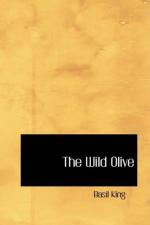“Then isn’t that all the more reason why we should help him?”
“Help him? How?”
“By trying to win his case for him.”
He looked at her with eyes twinkling while his fingers concealed the smile behind his colorless mustache.
“And how would you propose to set about that?”
“I don’t know, but I suppose you do. There must be ways. He’s leaving as soon as he can for South America. He thinks it may be months before he gets back. I thought that—perhaps—in the mean time—while he won’t be able to do anything for himself—you might see—”
“Yes, yes; go on,” he said, as she hesitated.
“You might see if there is any evidence that could be found—that wasn’t found before—isn’t that the way they do it?—and have it ready—for him when he came back.”
“For a wedding present.”
“It would be a wedding present—to all of us. It would be for Evie’s sake. You know how I love her. She’s the dearest thing to me in the world. If I could only secure her happiness like that—”
“You mean, if I could secure it.”
“You’d be doing it actively, but I should want to co-operate.”
“In what way?”
She sat very still. She was sure he understood her by the sudden rigidity of his pose, while his eyes stopped twinkling, and his fingers ceased to travel along the line of his mustache. Her eyes fell before the scrutiny in his, but she lifted them again for one of her quick, wild glances.
“In any way you like.”
She tried to make her utterance distinct, matter of fact, not too significant, but she failed. In spite of herself, her words conveyed all their meaning. The brief pause that followed was not less eloquent, nor did it break the spell when Conquest gave a short little laugh that might have been nervous and, changing his posture, leaned forward on his desk and scribbled on the blotting-pad. While he would never have admitted it, it was a relief to him, too, not to be obliged to face her.
He was not shocked, neither was he quite surprised. He was accustomed to the thought that a woman’s love was a thing to purchase. One man bought it from her father for a couple of oxen, another from herself for an establishment and a diamond tiara. It was the same principle in both cases. He had never considered Miriam Strange as being without a price; his difficulty had been in knowing what it was. The establishment and the diamond tiara having proved as indifferent to her as the yoke of oxen, he was thrown back upon the alternative of heroic deeds. He had more than once suspected that these might win her if they had only been in his line. There being few opportunities for that kind of endeavor as the head of a large and lucrative legal practice, the suggestion only left him cynical. In the bottom of his heart he had long wished to dazzle, by some act of prowess, the eyes that saw him only as a respectable man of middle age, but the desire had merely mocked him with the kind of derision which impotence gets from youth. It seemed now a stroke of luck which almost merited being termed an act of Providence that there should have come a call for exactly his variety of “derringdo” from the very quarter in which he could make it tell.




